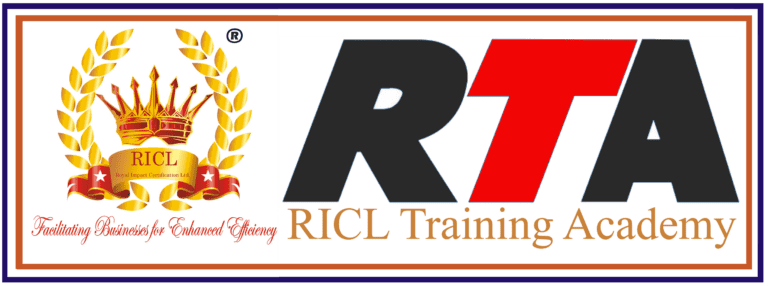Explore the fees for ISO 50001 Lead Auditor courses. Find affordable rates for training in energy management systems and enhance your auditing expertise.ISO 50001 Lead Auditor Courses Fees, enabling them to enhance their energy performance, increase energy efficiency
ISO 50001 Lead Auditor Courses Fees
Investing in ISO 50001 Lead Auditor training is a smart choice for professionals looking to enhance their expertise in energy management systems (EnMS). With a growing demand for energy efficiency and sustainability, ISO 50001 certification opens the door to new career opportunities. We offer affordable training rates to help you gain the skills needed to become a certified lead auditor in energy management.

General introduction about ISO 50001 and Lead Auditor courses
ISO 50001 Lead Auditor Courses Fees, enabling them to enhance their energy performance, increase energy efficiency, decrease costs, and widen measures in sustainability. The demand for professionally qualified ‘Lead Auditors to assess ISO 50001 compliance’ is also on the rise with an increasing global focus on energy conservation and environmental responsibility. By far, such lead auditors are the key personnel in reviewing an organization’s practices for energy management and adhering to the requirements of necessary certification.
ISO 50001 Lead Auditor courses are designed to impart this knowledge and the skills used in the process of auditing an organization’s EnMS based on ISO 50001 standards. Among other things, ISO 50001 Lead Auditor courses include elements on planning, conducting, reporting, and follow-up for all the phases of the audit process. But there are also questions about the fees charged for the relevant courses due to various reasons.
Factors Affecting Course Fees
Prices for ISO 50001 Lead Auditor courses vary drastically depending on a few variables:
Course Format: ISO 50001 Lead Auditor classes are available in many formats, including in-person, virtual, and blended modes of learning. In-person formats, however, tend to be further away from the others regarding venue rental, material, and travel costs. Virtual modes of learning generally have fewer overhead costs compared to face-to-face classes and hence are relatively cheaper or at best reasonably competitive in their pricing. The nature of the course being online, therefore, may eliminate some kinds of expenses, which makes it possible to attract a broader range of price options.
Course Duration: The course span itself can viciously impact the fee. A proper, long-spanning lead auditor course would usually cover the duration of 3‒5 days. Extended course durations would require higher fees as the traces of instruction would also increase, along with extra provided materials. How comprehensive these courses are, and the content that must be covered in each of them, might determine the pricing, with the more extensive programs generally at a higher range.
Venue: The geographical venue of the training can also trigger the costs to vary. Roughly, those courses offered in major towns or places that are a bit costly to live in have high fees relative to those courses offered in small towns or relatively cheaper areas. Also, the significant market demand can have an impact on the pricing of training. For instance, increased demand for training in a particular region will have relatively high fees for those courses.
Expertise: The wide experience and qualification of instructors also seem to further weight fees to be charged for a course. Courses conducted by well-experienced auditors or industry professionals are likely to command higher prices, considering that they are more capable and likely to be able to impart the requisite knowledge and exposure. Instructors who are specialist in energy management are likely to be premium-priced because of the high competence associated with the advanced understanding of the subject content.
Certification and Accreditation: Certification is at times embedded in some courses and thereby charges a price in it. In the same way, accredited courses are accredited by recognized bodies, and it is known as the reason to hike the fee of the course as a result of quality assurance and recognition of that accreditation. Notably, since organizations would like to have their employees receive accredited training to achieve quality education, this reason would actually justify the high fees at times charged.
Included Materials: Prices can also differ on the basis of what is included in the course. Some may include comprehensive training manuals, online access, or access to additional learning resources. This factor then plays a role in changing the bottom-line price for that course. For example, classes which include supplementary materials, such as case studies, practical exercises, or simulation activities, could be more expensive solely for that reason. Common Prices
Even though the fees that exist for ISO 50001 Lead Auditor courses vary completely from one to the other, people who intend to become participants should know what the price is really like according to the mentioned factors. The prices for such courses are generally in the several hundred to thousand dollar range.
Base or Basic Courses: An entry-level or basic ISO 50001 Lead Auditor course may cost between $500 and $1,000. These would focus on the basics of auditing, therefore, they are capable of having much smaller curriculum sizes and durations, hence favorable to novices.
Intermediate Classes: More intensive classes, which include the core concepts of the audit techniques and the ISO 50001 requirements, will probably be at a range of $1,000 to $2,500. These will be more of an applied or case-based course, enriched through a combination of practical exercises and case studies, to totally equip the participant with a clean understanding of the audit process.
Advanced courses include classes for advanced lead auditor training, which can provide specialist topics or industrial focuses; these classes can range from $2,500 to $4,000 and over. These courses have been largely aimed at wide training and may include examinations for certification.
Corporate Training: Should corporations need to train multiple employees, corporate training programs that could be customized to fit needs may be very effective. The program cost, for greater or fewer participants, varied based on the duration and extent of customization. Corporate training programs turn out to be cost-efficient for organizations aiming to train multiple teams jointly.
Other possible added expenses of taking up this course ISO 50001 Lead Auditor include:
Travel and Accommodation: This soon becomes an additional cost if it is an in-class course which at the last minute and due to logistics constriction takes place in another city or even abroad. The final training investment can soar if these fees are added.
The certification costs might include an examination fee, in which participants are charged an extra amount needed for taking the certification examination. The cost normally varies but is inclusive of the whole amount. Participants should seek other probable hidden costs in certification in order to be well prepared.
Membership Fees: Some organizations will pass on member savings to training costs but without pre-existing membership, everyone must weigh the investment in that membership program into the overall training. It should also be considered that membership could bring further resources, networking contacts, and continuing professional development.
Renewal Fees: The majority of certifications obtained from these lead auditor courses require renewal after some period. This renewal may also give rise to additional fees towards continuing education and re-examination; these long-term costs involved with maintaining one’s status of certification should be clear to the participants.
Value of Training as a Lead Auditor
In other words, while the fees for the ISO 50001 Lead Auditor courses are relatively high, the payback potential of their investment is unquestionable. For professionals, a certified lead auditor will enhance employability en route to higher salient benefits and career progression up the ladder of energy management. Practices in energy efficiency, including better practices in compliance and competitiveness in the market, will accrue to the benefit of an organization.
Furthermore, the discoveries of the training will bestow the auditors with the competency to give effective audits and discover potential scopes for development that can be used to stage the success of the organizational energy management tasks. The compliance within the standard ISO 50001 will keep an organization extricate from costly issues related to non-compliance, and it will help to minimize the use of energy and support sustainability.
Conclusion
ISO 50001 Lead Auditor courses are one of the valued investments an auditor can make to enhance skills and truly contribute to successful energy management within an organization. The course fees will certainly depend on the format, duration, location, and the expertise of its instructors, but participants should consider certification as a long-term investment. Investing in lead auditor training will provide people with opportunities to succeed in fields linked to energy management and, for organizations, more attestation of commitment to energy efficiency and continuous improvement. Understanding the myriad of factors affecting course fees can assist participants in making wise choices toward training that best meets their requirements and budget.
Lead Auditor & Internal Auditor Training: QMS, EMS, OHSMS + Awareness Courses
Refine your know-how in Quality Management Systems by taking our all-inclusive Lead Auditor QMS training course. We equip you with skills necessary for effective auditing as well as ensuring conformance with ISO standards. It is an excellent resource for people who want to become professionals in QMS auditing through detailed knowledge and practical information.”
Become a certified Lead Auditor in Environmental Management Systems with our specialized training course. This program offers necessary know-how and skills for conducting effective inspections while also promoting environmental compliance according to ISO regulations. The perfect opportunity for those looking to progress their career further into the realm of environmental management”
Pursue your career growth using our Lead Auditor OHSMS training course, which is tailored towards equipping you with the skills needed to undertake comprehensive evaluations of Occupational Health and Safety Management Systems. Obtain practical capabilities as well as experience that guarantee individual workplaces’ security conformity with the most recent ISO requirements”.
Our Internal Auditor QMS training can help you improve your auditing skills. This course covers the principles and practices necessary for conducting internal audits of Quality Management Systems. Ideal for professionals looking to increase their understanding of QMS and contribute to organizational excellence.
Our Internal Auditor EMS course will help you enhance your skills in environmental auditing. Learn techniques and standards needed to implement efficient internal audits of environmental management systems, ensuring ISO compliance and its environmental sustainability.
The purpose of our Internal Auditor OHSMS training is to equip you with the necessary skills to conduct effective internal audits. This course gives an extensive overview on how to audit Occupational Health & Safety Management Systems so that you can achieve compliance and create a safe workplace.
Hone your understanding of Quality Management Systems (QMS) through our Awareness Auditor QMS. These courses provide a basic understanding of the principles, benefits and implementation strategies of QMS making them instrumental for improving quality management practices by individuals or teams.
Familiarize yourself with essential knowledge regarding the Environmental Management Systems by exploring our Awareness Auditor EMS. The courses offer an overview of the principles of EMS which will help you comprehend environmental policies and procedures along with their importance in achieving sustainability targets.
Out training programs on Occupational Health and Safety Management Systems are meant to improve your awareness in this field. This course is intended for organizations and individuals, they provide essential information on OHSMS principles and practices that lead to safer and compliant work environments.
Other Blogs
- Adaptability Thrive in a Dynamic World
- Artistic Sense Elevate Expression & Drive Innovation
- Body Language A Key Form of Non-Verbal Communication
- Business Ethics: Upholding Integrity and Sustainability
- Business Etiquette Cultivating Professionalism and Success
- Business Trend Awareness Stay Ahead & Drive Success
- Collaboration Foster Synergy for Collective Success
- Competitiveness Driving Excellence & Superior Performance
- Conflict Resolution Navigate Tensions for Positive Results
- Crisis Management Strategic Response & Communication
- Critical Thinking Empower Strategic Decisions
- Customer Service Excellence: Fostering Relationships and Driving Success
- Customizing ISO Training for Different Industry Needs: A Tailored Approach
- Dealing with Difficult People Constructive Interaction Tips
- Decision Making: Strategies for Complex Environments
- Delegation Strategic Empowerment for Success
- Design Sense Inspire Creativity & Spark Innovation
- Diplomacy Navigate Relationships & Achieve Goals
- Disability Awareness Embracing Inclusion and Empowerment
- Dispute Resolution Foster Collaboration & Harmony
- Diversity Awareness Fostering Inclusion and Collaboration
- Empathy Enhance Understanding & Build Stronger Connections
- Entrepreneurial Thinking Cultivating Innovation and Initiative
- Facilitation Enhance Group Dynamics Effectively
- Feeling Stagnant in Your Career? Start Here
- Giving Feedback Bridging Performance Gaps Effectively
- Humor A Universal Aspect of Human Experience
- Inspiring Cultivate Authentic Leadership
- Interviewing Skills Effective Communication in Recruitment
- ISO 14001 Lead Auditor Courses PDF Download
- ISO 14001 Lead Auditor Courses Study Material
- ISO 14001: Environmental Management Training Essentials
- ISO 22301 Internal Auditor Courses Material Download
- ISO 22301 Lead Auditor Courses Fees
- ISO 22301 Lead Auditor Courses Material Download
- ISO 22301 Lead Auditor Courses PDF Download
- ISO 30000 Internal Auditor Courses Material Download
- ISO 37001 Lead Auditor Courses PDF Download
- ISO 37001 Lead Auditor Courses Study Material
- ISO 41001 Internal Auditor Courses Material Download
- ISO 41001 Lead Auditor Courses Material Download
- ISO 41001 Lead Auditor Courses PDF Download
- ISO 41001 Lead Auditor Courses Study Material
- ISO 45001 Internal Auditor Courses Material Download
- ISO 45001 Lead Auditor Courses Fees
- ISO 45001 Lead Auditor Courses Material Download
- ISO 45001 Lead Auditor Courses PDF Download
- ISO 45001 Lead Auditor Courses Study Material
- ISO 50001 Internal Auditor Courses Material Download
- ISO 50001 Lead Auditor Courses Fees
- ISO 50001 Lead Auditor Courses Material Download
- ISO 50001 Lead Auditor Courses PDF Download
- ISO 50001 Lead Auditor Courses Study Material
- ISO 50001 Energy Management Training for Sustainability
- ISO 9001 Certification A Comprehensive Training Guide
- ISO 9001 Internal Auditor Courses Material Download
- ISO 9001 Lead Auditor Certificate Course
- ISO 9001 Lead Auditor Certification in India
- ISO 9001 Lead Auditor Courses Benefits
- ISO 9001 Lead Auditor Courses Cost
- ISO 9001 Lead Auditor Courses Exam Question and Answers
- ISO 9001 Lead Auditor Courses Fees
- ISO 9001 Lead Auditor Courses Fees
- ISO 9001 Lead Auditor Courses Fees in Chennai,Noida,Delhi
- ISO 9001 Lead Auditor Courses PDF Download
- ISO 9001 Lead Auditor Courses Study Material
- ISO Certification in Delhi NCR
- ISO Certification in India
- ISO Certification in Noida
- ISO Full Form
- ISO Lead Auditor Training Near Noida
- ISO Training for New Employees: Onboarding and Integration Best Practices
- Latest ISO Training Courses & Certificates
- Lead Auditor Certification
- Lead Auditor Course
- Lead Auditor ISO 14001 Course
- Lead Auditor ISO 22000 Course
- Lead Auditor ISO 45001 Course
- Lead Auditor ISO 9001 Course
- Lead Auditor Online Courses
- Lead Auditor Salary
- Lead Auditor Training
- Lead Auditor Training Provider in Delhi
- Lead Auditor Training Provider in India
- Lead Auditor Training Provider in Noida
- Listening The Cornerstone of Effective Communication
- Adaptability Thrive in a Dynamic World
- Artistic Sense Elevate Expression & Drive Innovation
- Body Language A Key Form of Non-Verbal Communication
- Business Ethics: Upholding Integrity and Sustainability
- Business Etiquette Cultivating Professionalism and Success
- Business Trend Awareness Stay Ahead & Drive Success
- Collaboration Foster Synergy for Collective Success
- Competitiveness Driving Excellence & Superior Performance
- Conflict Resolution Navigate Tensions for Positive Results
- Crisis Management Strategic Response & Communication
- Critical Thinking Empower Strategic Decisions
- Customer Service Excellence: Fostering Relationships and Driving Success
- Customizing ISO Training for Different Industry Needs: A Tailored Approach
- Dealing with Difficult People Constructive Interaction Tips
- Decision Making: Strategies for Complex Environments
- Delegation Strategic Empowerment for Success
- Design Sense Inspire Creativity & Spark Innovation
- Diplomacy Navigate Relationships & Achieve Goals
- Disability Awareness Embracing Inclusion and Empowerment
- Dispute Resolution Foster Collaboration & Harmony
- Diversity Awareness Fostering Inclusion and Collaboration
- Empathy Enhance Understanding & Build Stronger Connections
- Entrepreneurial Thinking Cultivating Innovation and Initiative
- Facilitation Enhance Group Dynamics Effectively
- Feeling Stagnant in Your Career? Start Here
- Giving Feedback Bridging Performance Gaps Effectively
- Humor A Universal Aspect of Human Experience
- Inspiring Cultivate Authentic Leadership
- Interviewing Skills Effective Communication in Recruitment
- ISO 14001 Lead Auditor Courses PDF Download
- ISO 14001 Lead Auditor Courses Study Material
- ISO 14001: Environmental Management Training Essentials
- ISO 22301 Internal Auditor Courses Material Download
- ISO 22301 Lead Auditor Courses Fees
- ISO 22301 Lead Auditor Courses Material Download
- ISO 22301 Lead Auditor Courses PDF Download
- ISO 30000 Internal Auditor Courses Material Download
- ISO 37001 Lead Auditor Courses PDF Download
- ISO 37001 Lead Auditor Courses Study Material
- ISO 41001 Internal Auditor Courses Material Download
- ISO 41001 Lead Auditor Courses Material Download
- ISO 41001 Lead Auditor Courses PDF Download
- ISO 41001 Lead Auditor Courses Study Material
- ISO 45001 Internal Auditor Courses Material Download
- ISO 45001 Lead Auditor Courses Fees
- ISO 45001 Lead Auditor Courses Material Download
- ISO 45001 Lead Auditor Courses PDF Download
- ISO 45001 Lead Auditor Courses Study Material
- ISO 50001 Internal Auditor Courses Material Download
- ISO 50001 Lead Auditor Courses Fees
- ISO 50001 Lead Auditor Courses Material Download
- ISO 50001 Lead Auditor Courses PDF Download
- ISO 50001 Lead Auditor Courses Study Material
- ISO 50001 Energy Management Training for Sustainability
- ISO 9001 Certification A Comprehensive Training Guide
- ISO 9001 Internal Auditor Courses Material Download
- ISO 9001 Lead Auditor Certificate Course
- ISO 9001 Lead Auditor Certification in India
- ISO 9001 Lead Auditor Courses Benefits
- ISO 9001 Lead Auditor Courses Cost
- ISO 9001 Lead Auditor Courses Exam Question and Answers
- ISO 9001 Lead Auditor Courses Fees
- ISO 9001 Lead Auditor Courses Fees
- ISO 9001 Lead Auditor Courses Fees in Chennai,Noida,Delhi
- ISO 9001 Lead Auditor Courses PDF Download
- ISO 9001 Lead Auditor Courses Study Material
- ISO Certification in Delhi NCR
- ISO Certification in India
- ISO Certification in Noida
- ISO Full Form
- ISO Lead Auditor Training Near Noida
- ISO Training for New Employees: Onboarding and Integration Best Practices
- Latest ISO Training Courses & Certificates
- Lead Auditor Certification
- Lead Auditor Course
- Lead Auditor ISO 14001 Course
- Lead Auditor ISO 22000 Course
- Lead Auditor ISO 45001 Course
- Lead Auditor ISO 9001 Course
- Lead Auditor Online Courses
- Lead Auditor Salary
- Lead Auditor Training
- Lead Auditor Training Provider in Delhi
- Lead Auditor Training Provider in India
- Lead Auditor Training Provider in Noida
- Listening The Cornerstone of Effective Communication

TESTIMONIALS
What Our Cutomers are Saying About us

Ruis aute irure dolor in reprehender voluptate velit esse cillum dolore fugiat pariatur sint occaecat cupidata non proie sunt in culpa aui officede










Reach us at:
info@ricltrainingacademy.in
support@ricltrainingacademy.in
sales@ricltrainingacademy.in
complaint@ricltrainingacademy.in
Call us at:
9355650992
9355650993
Visit us at:
Royal Impact Certification Limited
623 Tower -B, The Ithum Sector – 62, Noida, 201301.
Copyright © 2024 RICL Training Academy Team


